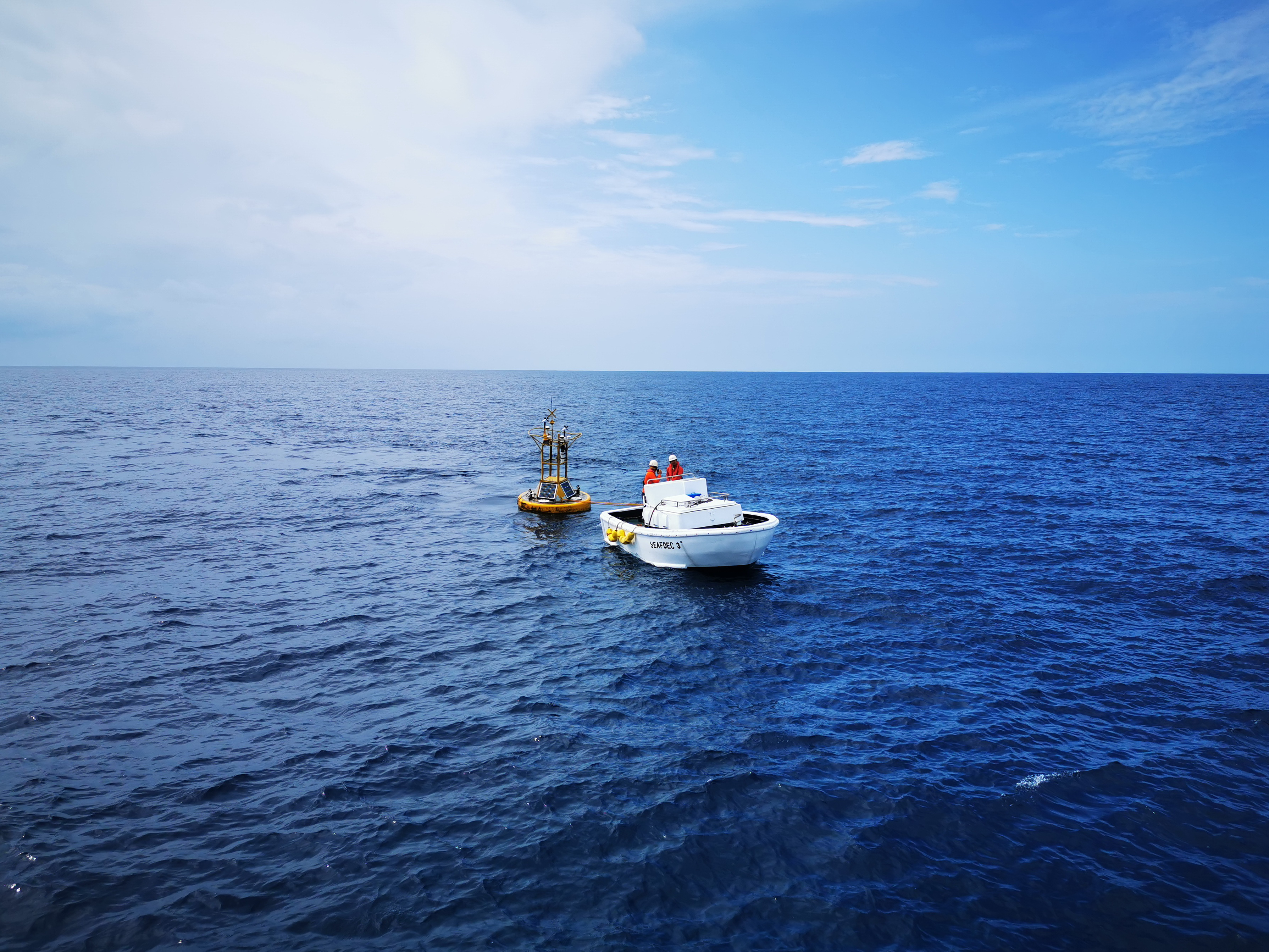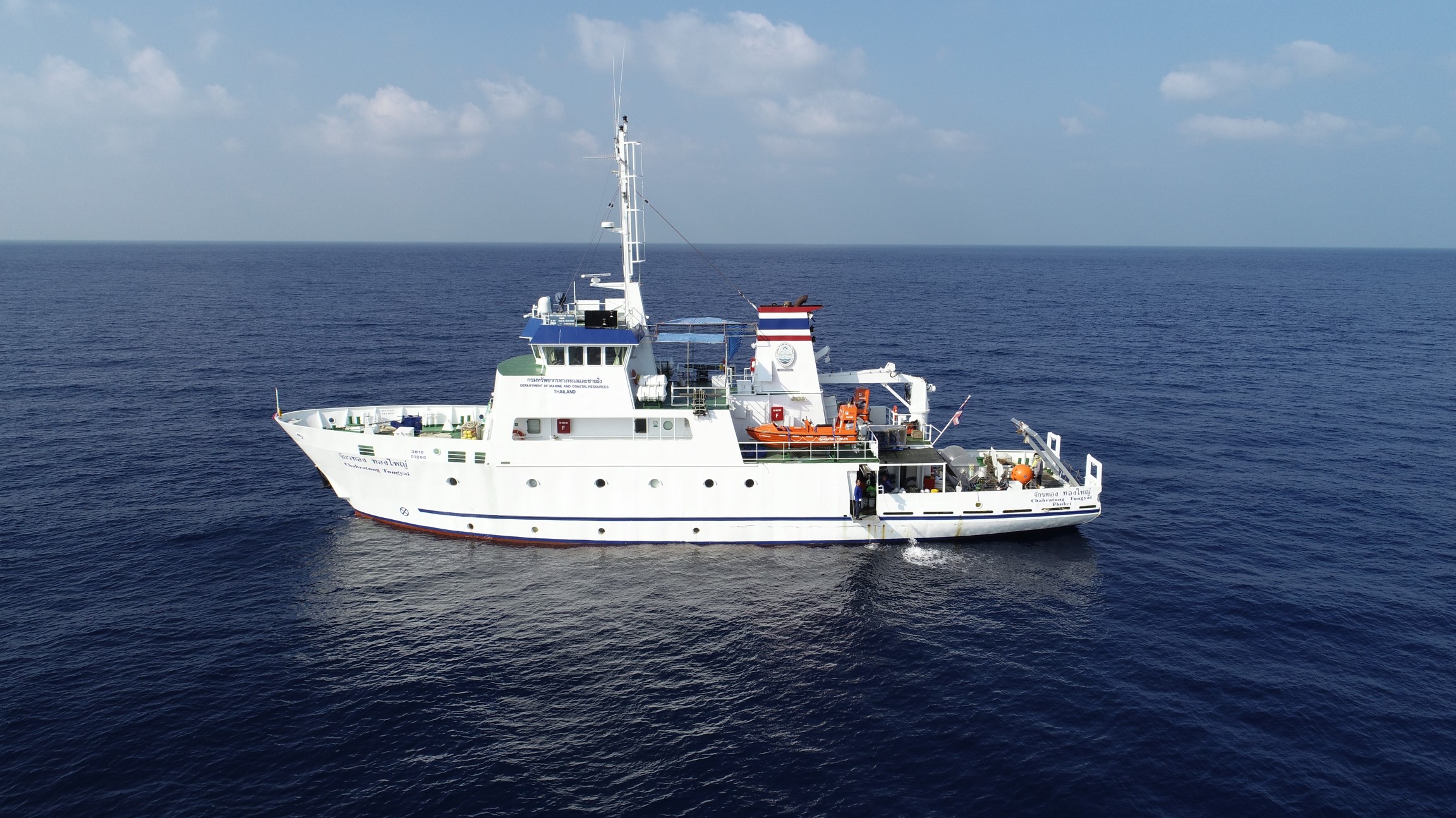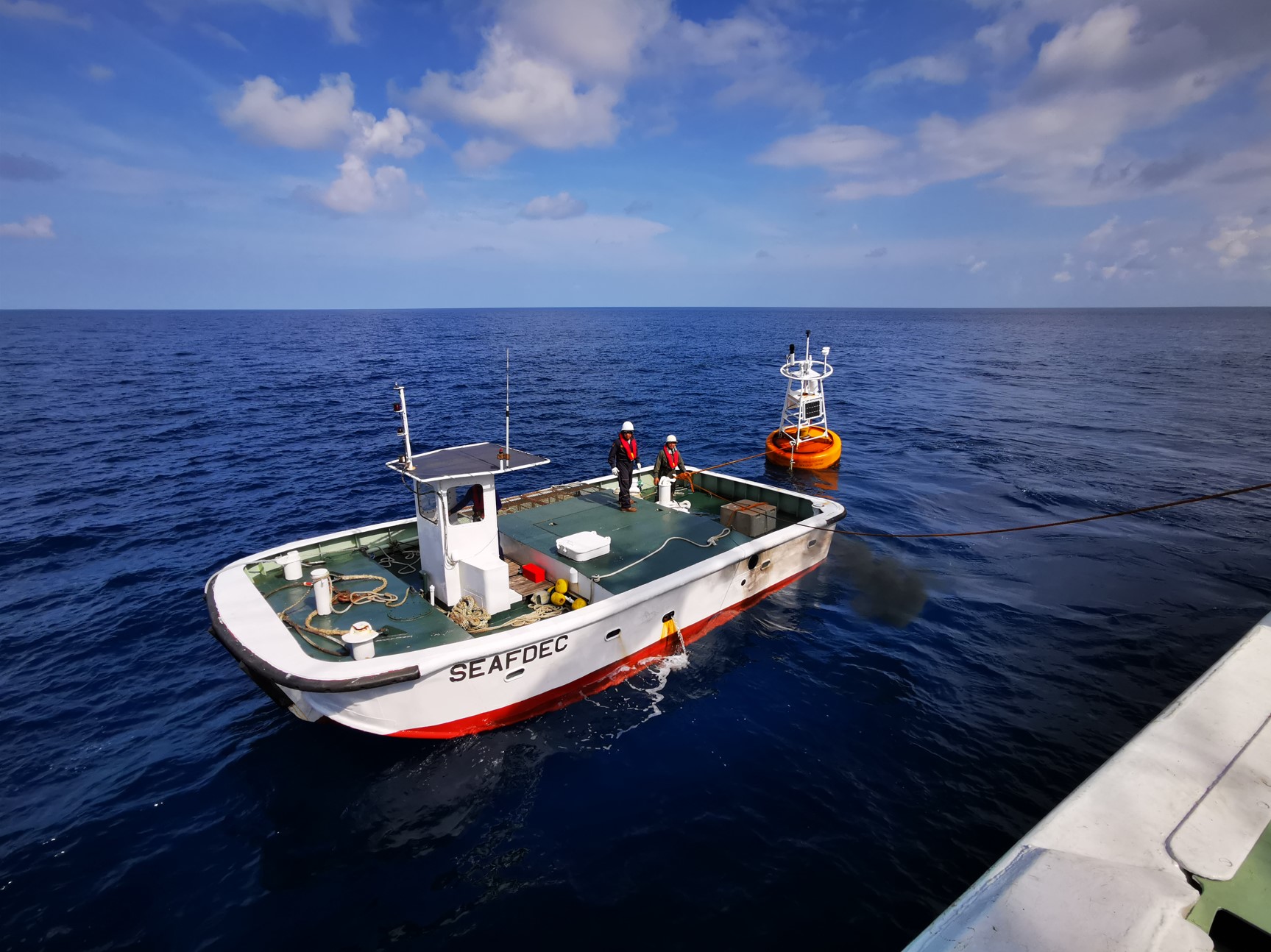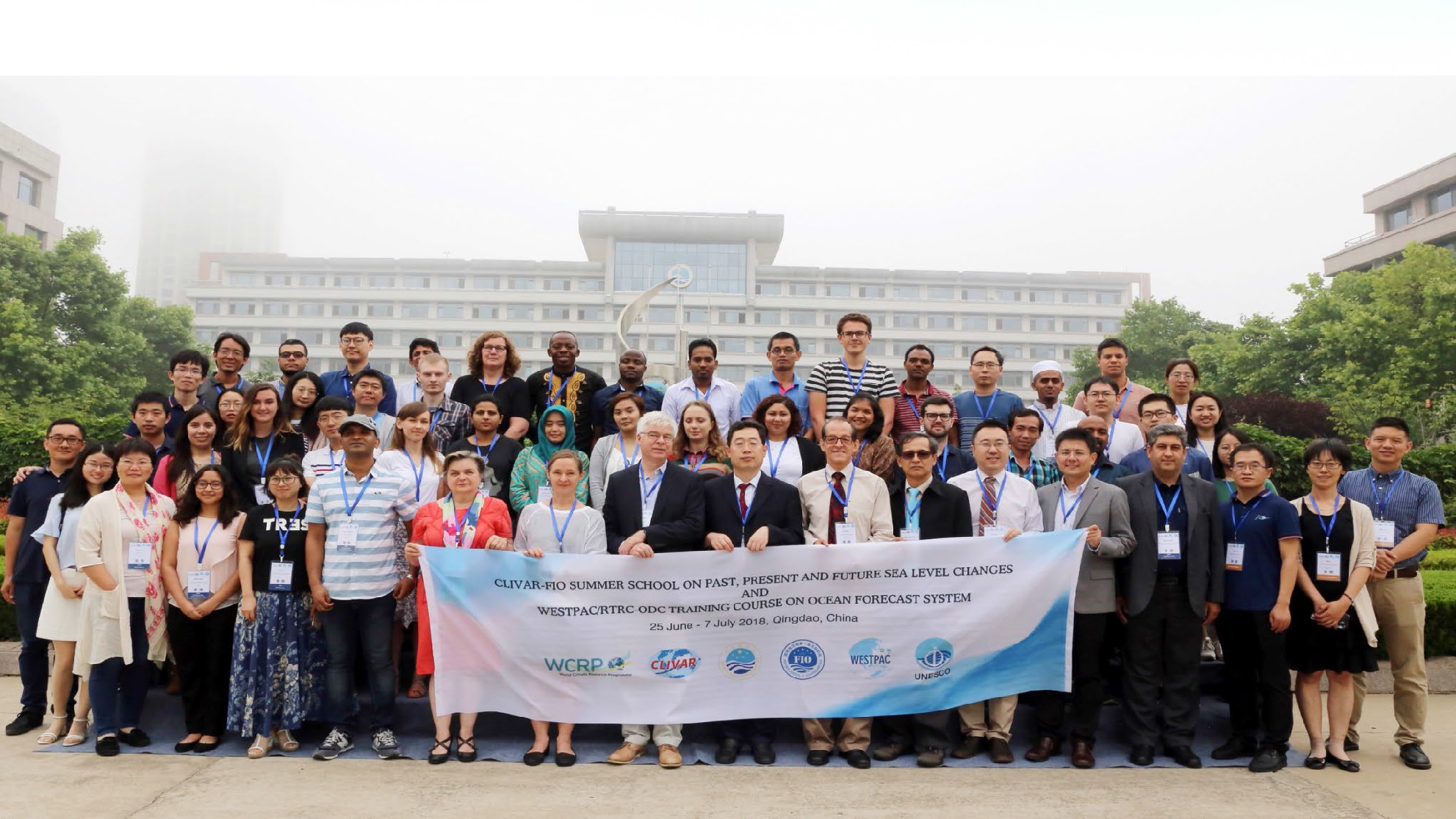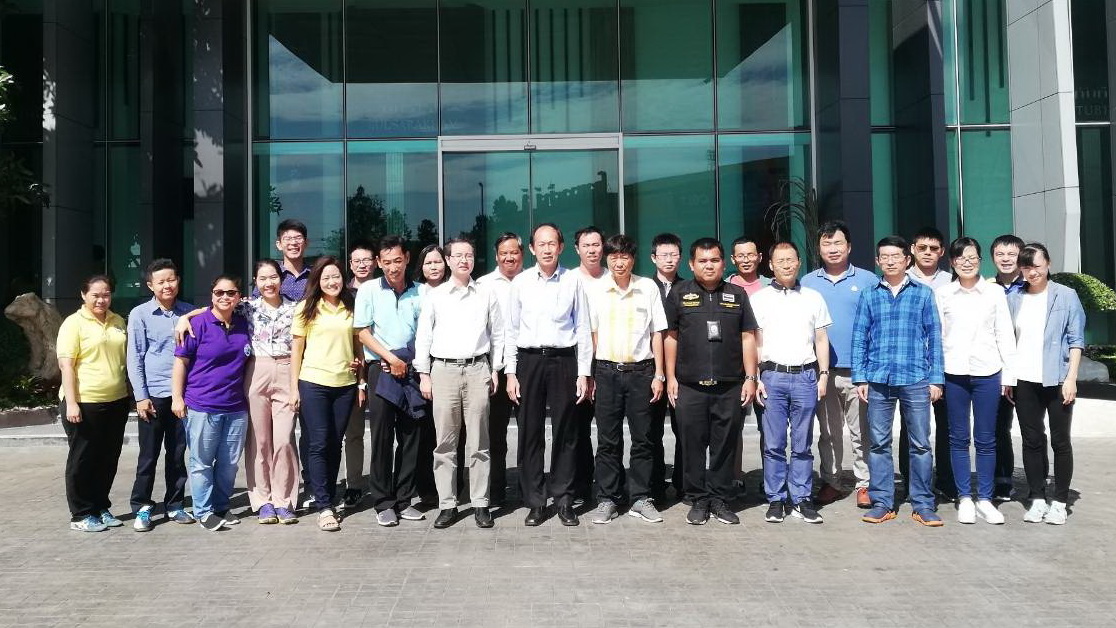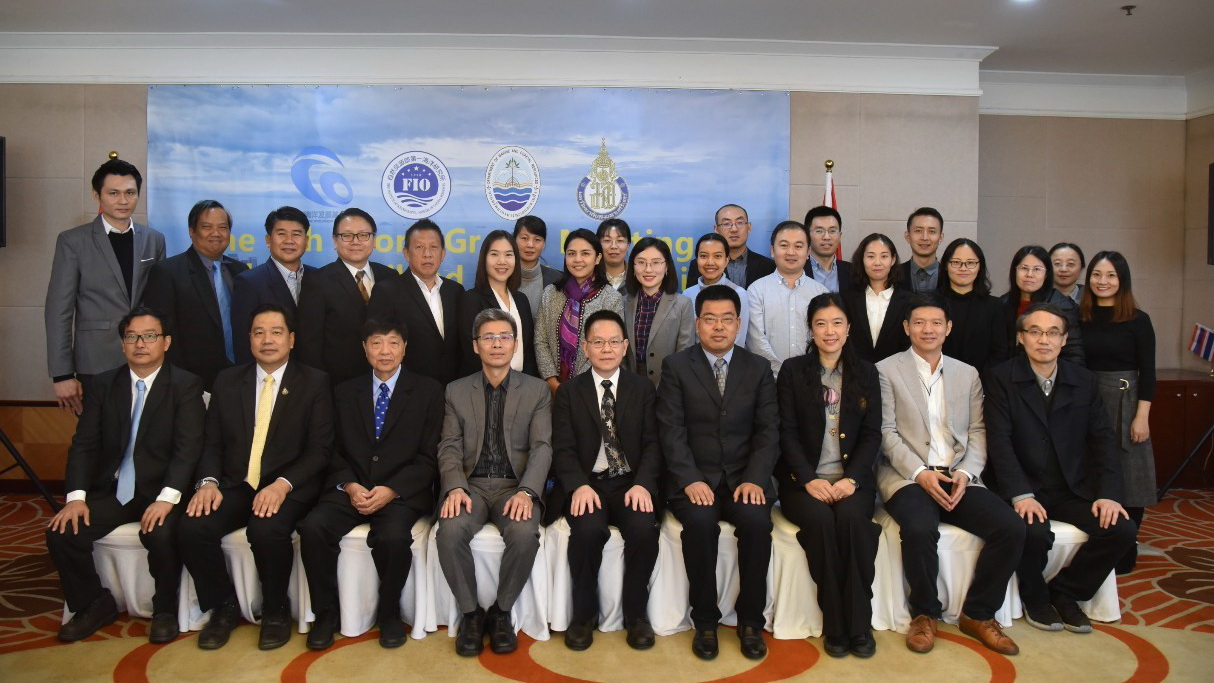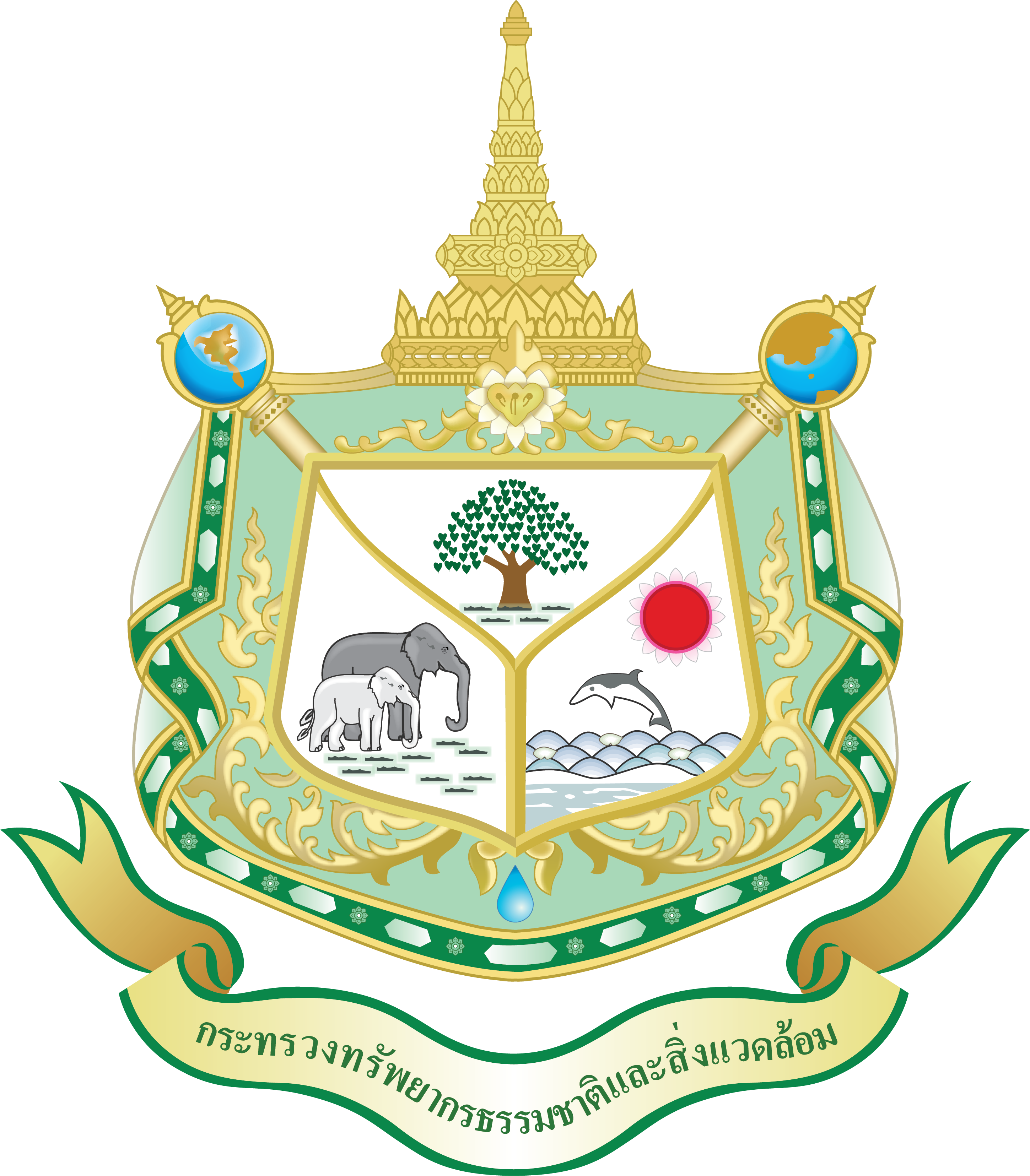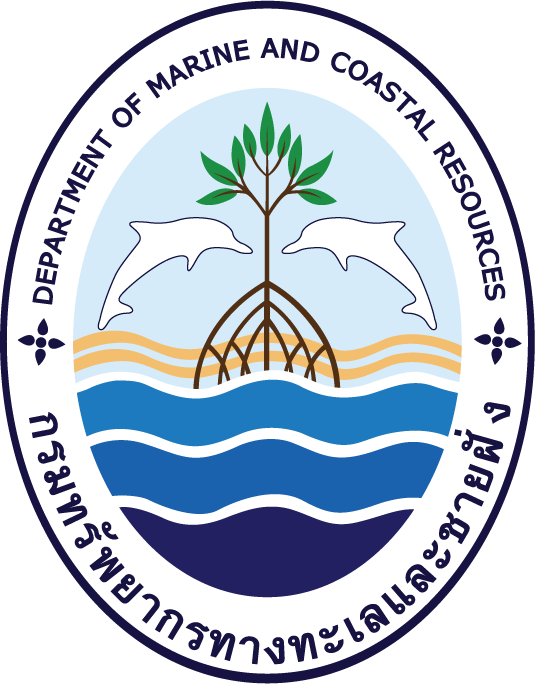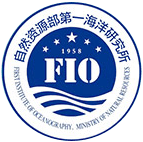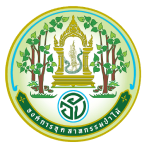Welcome欢迎你
Thailand-China Joint Laboratory for Climate and Marine Ecosystem
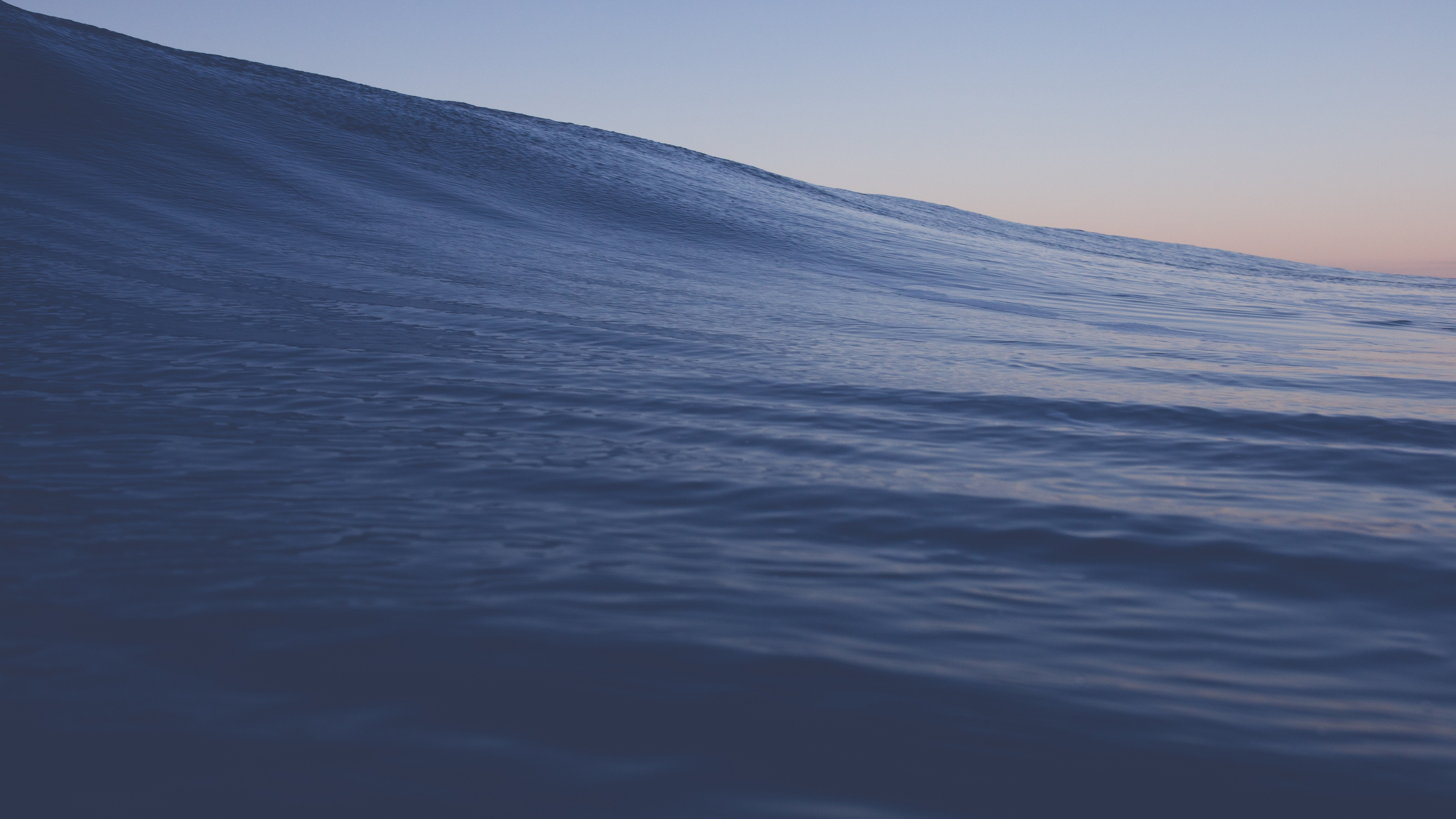

History
Thailand-China Joint Laboratory for Climate and Marine Ecosystem
The Joint Laboratory was established under the Arrangement between The Ministry of Natural Resources and Environment and The State Oceanic Administration on Establishment of Thailand-China Joint Laboratory for Climate and Marine Ecosystem which was signed on 7th April 2012 at Beijing, China. Temporary office for the Joint Laboratory, located at the Phuket Marine Biological Center, Phuket, Thailand, was officially operated on 6th June 2013.
Projects
News & Activities
see more +
Training Workshop on Marine Science Investigation and Observation
Phuket Marine Biological Center (PMBC), Department of Marine and Coastal Resources (DMCR), Thailand, in collaboration with the First Institute of Oceanography (FIO), China, and Thailand-China Joint Laboratory for Climate and Marine Ecosystem successfully completed a training workshop on Marine Science Investigation and Observation" in Phuket, Thailand, during December 16-19, 2025. The workshop was conducted as part of the project titled "Ocean Forecasting and Marine Disaster Mitigation System for the Southeast Asian Seas."The workshop was attended by participants, including researchers from DMCR, FIO, as well as universities including Chulalongkorn University, Kasetsart University, Burapha University (Chanthaburi Campus), and Prince of Songkla University (Phuket Campus). During the workshop, participants received lectures from experts of FIO, Ocean University of China, and Shanghai Jiao Tong University, who shared their knowledge, experiences, and valuable insights.Additionally, practical training was conducted on the preparation of oceanographic survey equipment for deep-sea exploration, enhancing participants' hands-on experience in marine surveys. The knowledge and experience gained from this workshop will significantly contribute to advancing marine research in Thailand.
Activities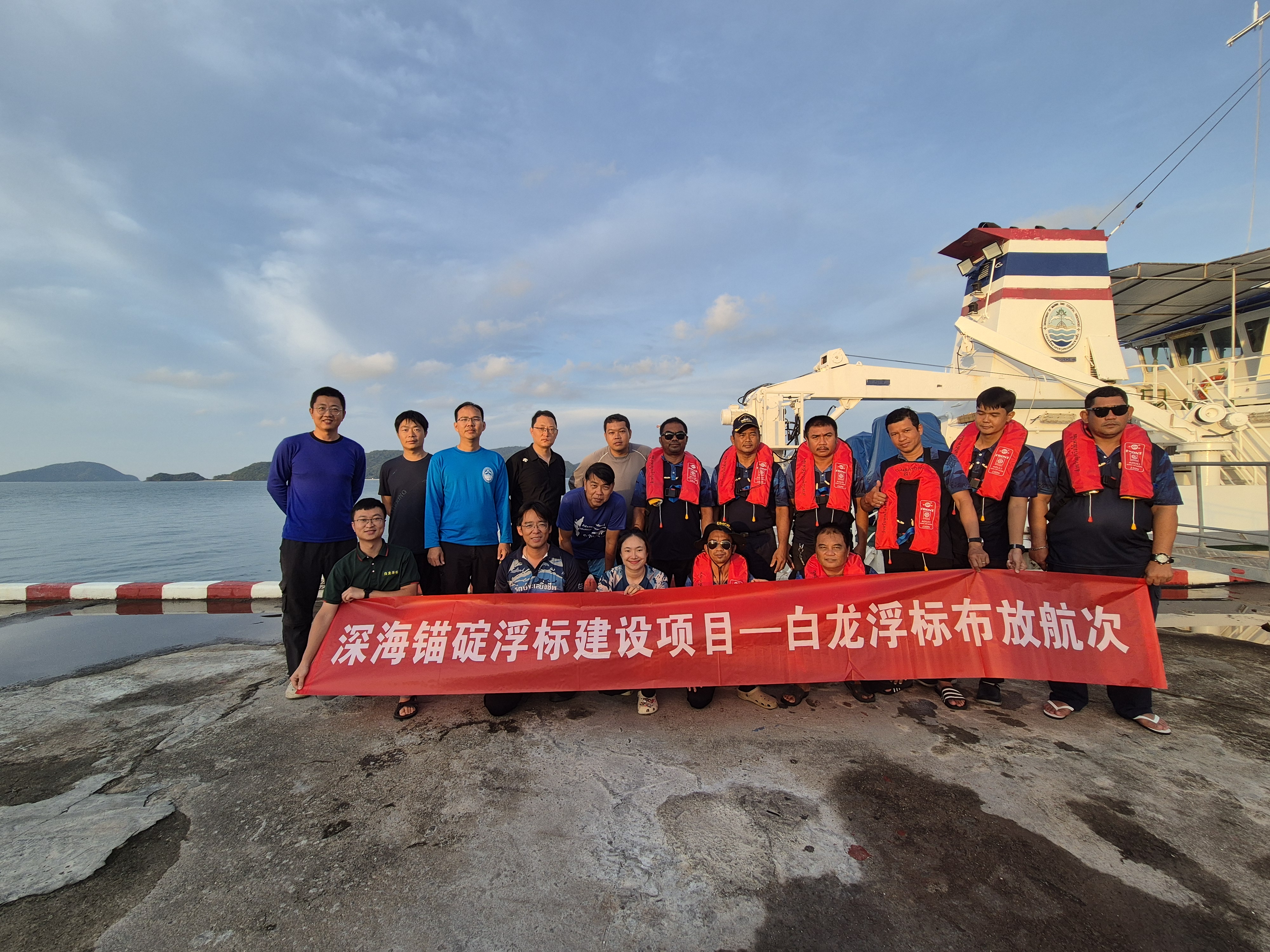
Jointly deploy buoys for meteorological and oceanographic observations in the Andaman Sea
During December 7-10, 2024, Phuket Marine Biological Center (PMBC), Thailand, First Institute of Oceanography (FIO), China, and Thailand-China Joint Laboratory for Climate and Marine Ecosystem jointly conducted a marine operation using R/V Chakratong Tongyai. The mission involved deploying oceanographic and meteorological buoys in the Andaman Sea with the objective of studying oceanographic and meteorological changes as well as monitoring internal waves. This research was conducted under the Monsoon Onset Monitoring and Its Social and Ecosystem Impact (MOMSEI) project. Additionally, the team collected microplastic samples in the Andaman Sea as well as observing offshore marine debris.
Activities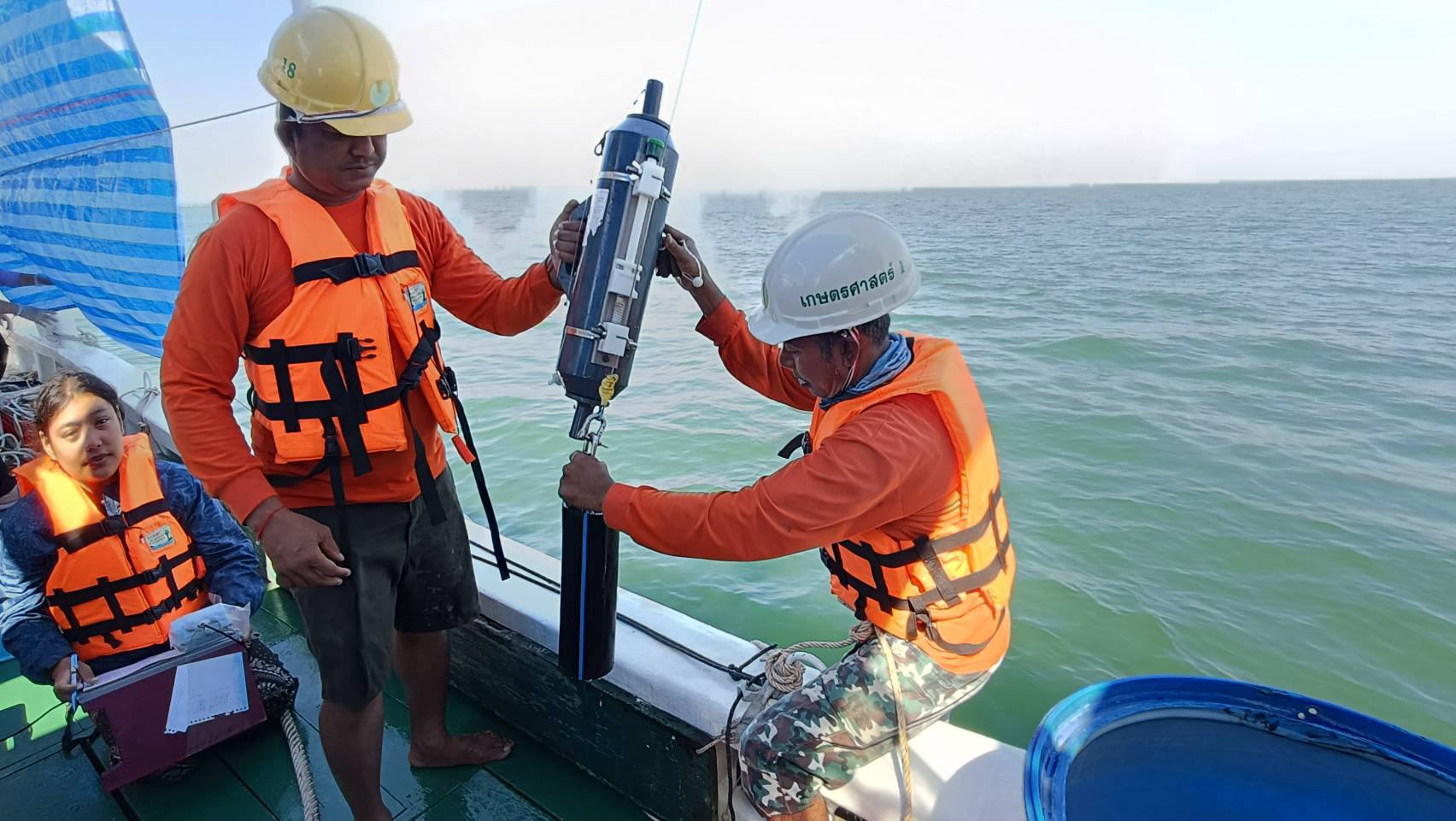
Jointly conduct observations of hypoxia in the upper gulf of Thailand
From November 25 to December 4, 2024, Marine and Coastal Resources Research Center (Upper Gulf of Thailand) in collaboration with Department of Marine Science, Chulalongkorn University, Faculty of Technology and Environment at Prince of Songkla University, Phuket Campus, Thailand, and First Institute of Oceanography (FIO), China, conducted a study on hypoxia in the upper gulf of Thailand with focus on biogeochemical changes in seawater and sediments. This study is a part of a project on the investigation the impacts of human activities and climate change on the loss of dissolved oxygen in coastal waters of the Gulf of Thailand in supports for the Coastal-SOS program under the United Nations Decade of Ocean Science for Sustainable Development (2021-2030), funded by the NRCT (Thailand Science Research and Innovation) and Thailand-China collaboration on Climate and Marine Ecosystem.
Activities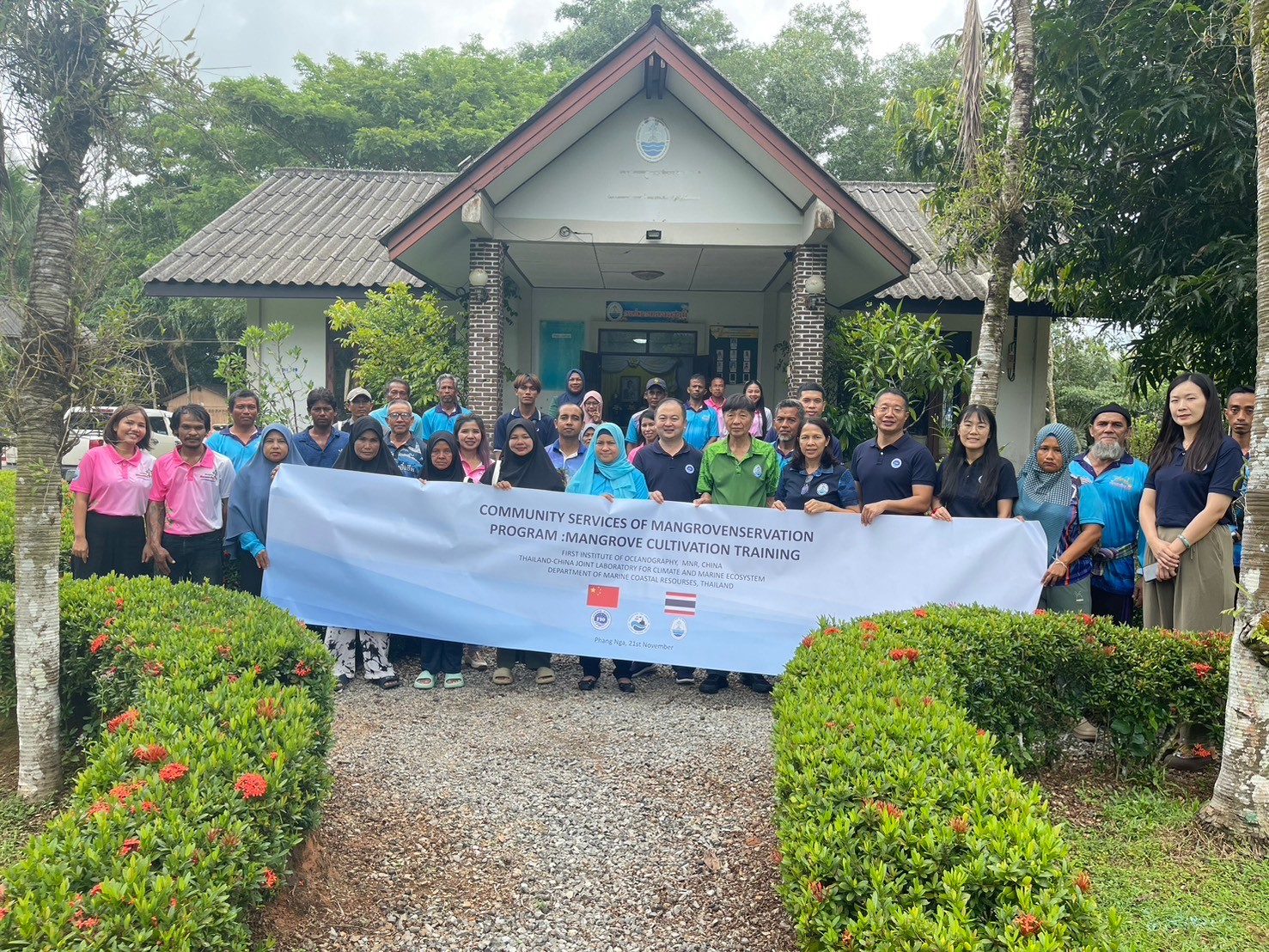
Thailand-China Joint Laboratory training for COMMUNITY SERVICES OF MANGROVENSERVATION PROGRAM : MANGROVE CULTIVATION TRAINING
Thailand-China Joint Laboratory for Climate and Marine Ecosystem, in collaboration with the Mangrove Research and Development Institute and the Mangrove Research and Development Center 3, organized a training event to educate 60 students and coastal communities in Phang Nga Province from November 20-21, 2024. The event included lectures, afforestation, waste collection, community exploration, and learning exchanges. This initiative marks the commencement of efforts to promote the conservation of mangrove resources among children and youth.
Activities
